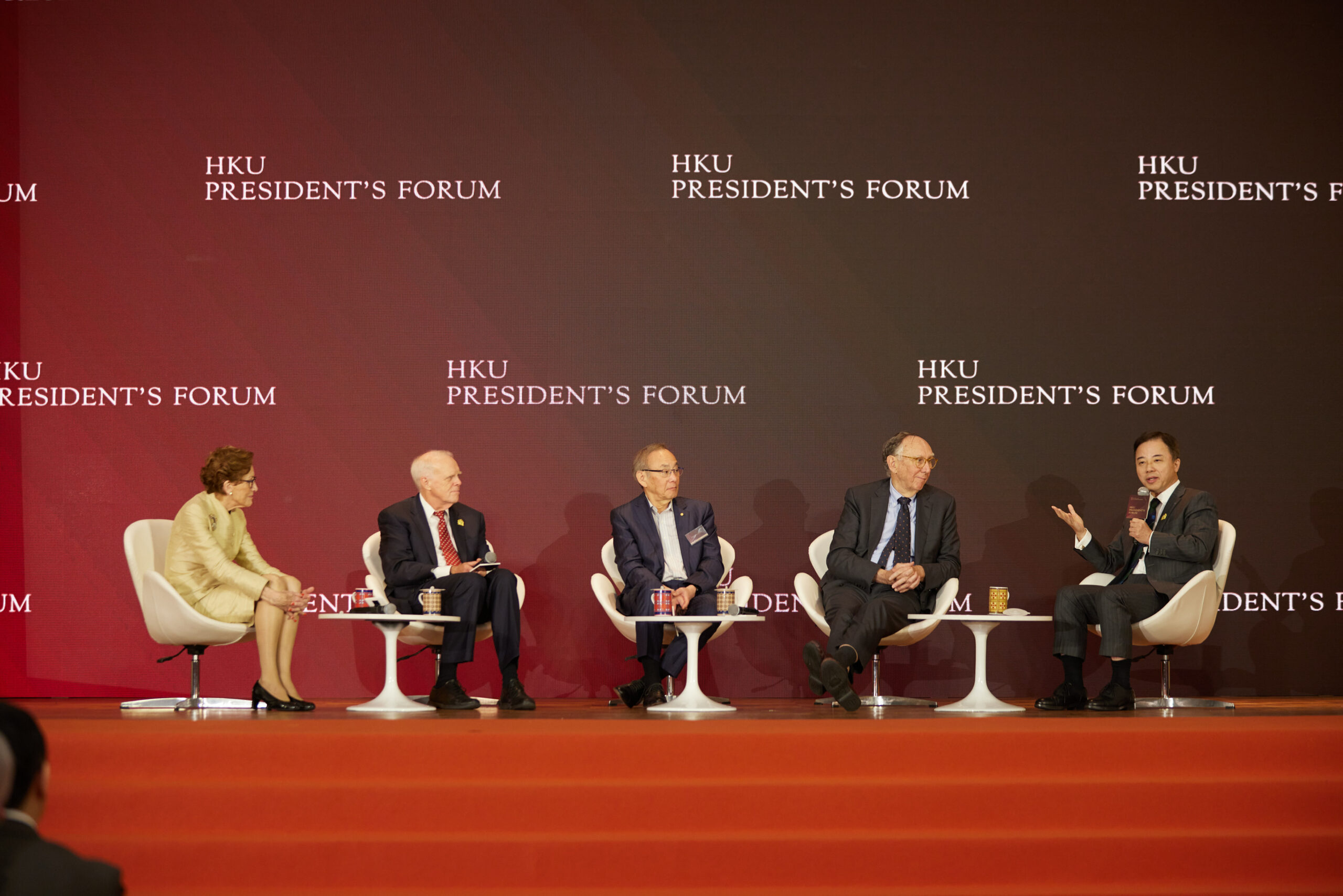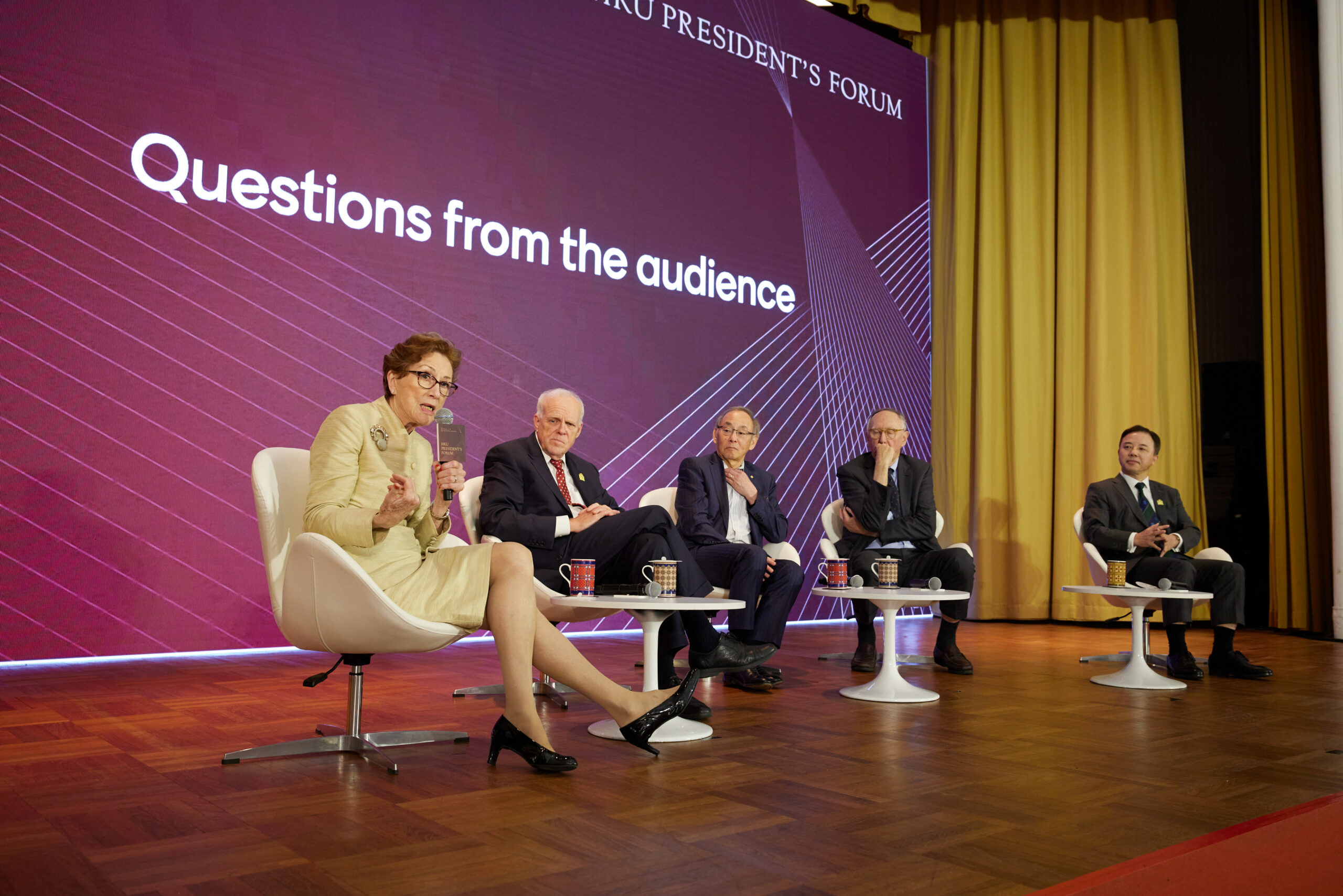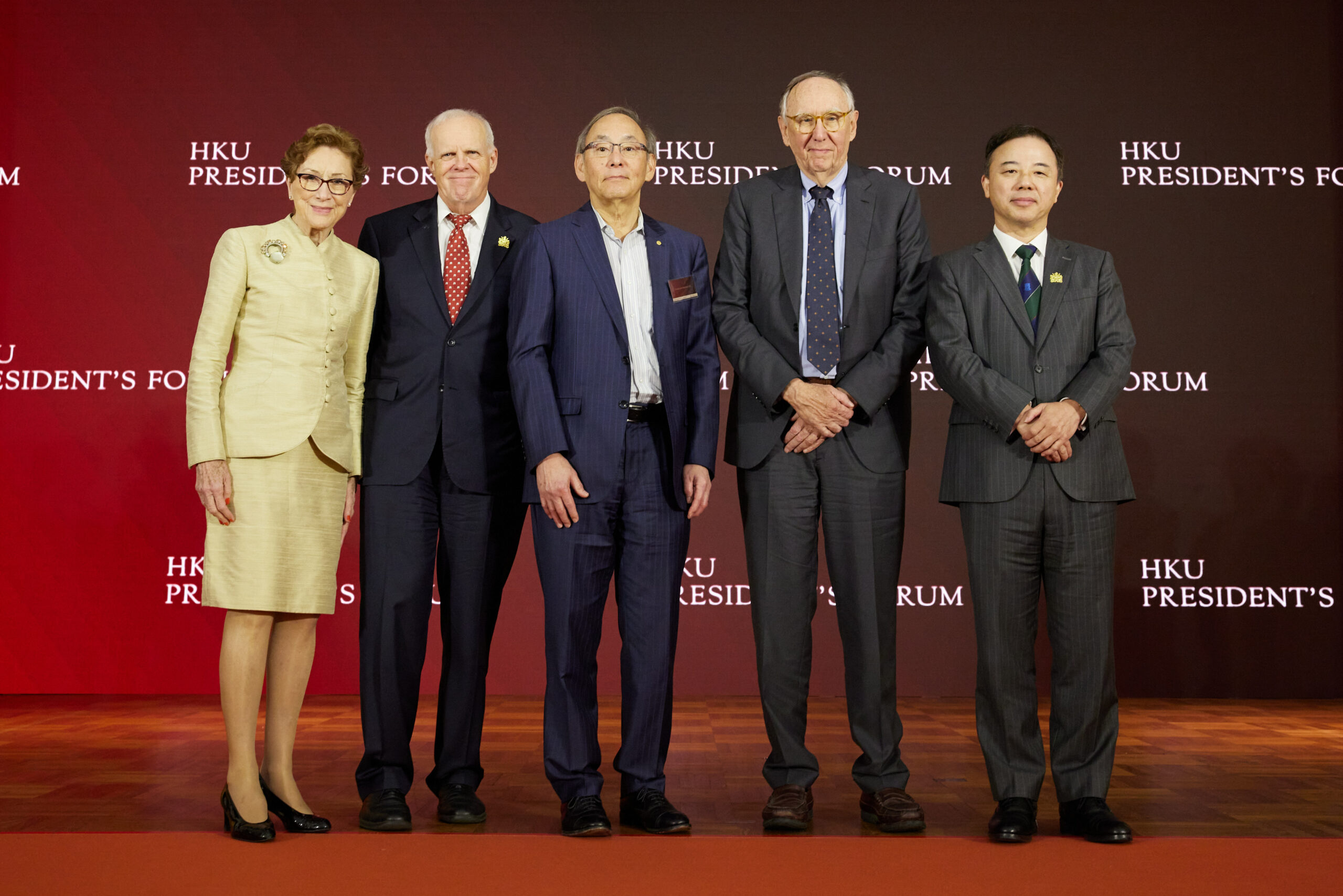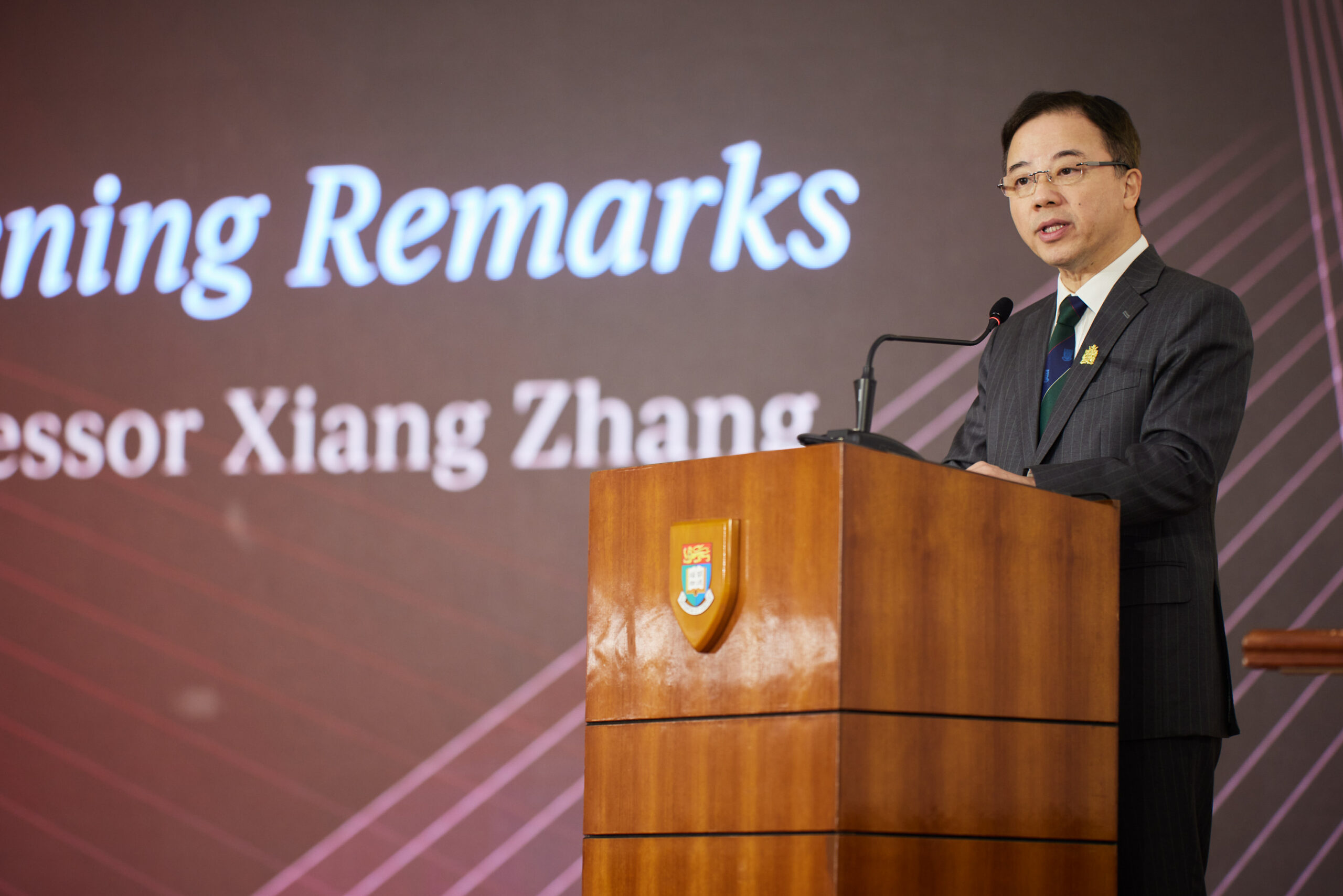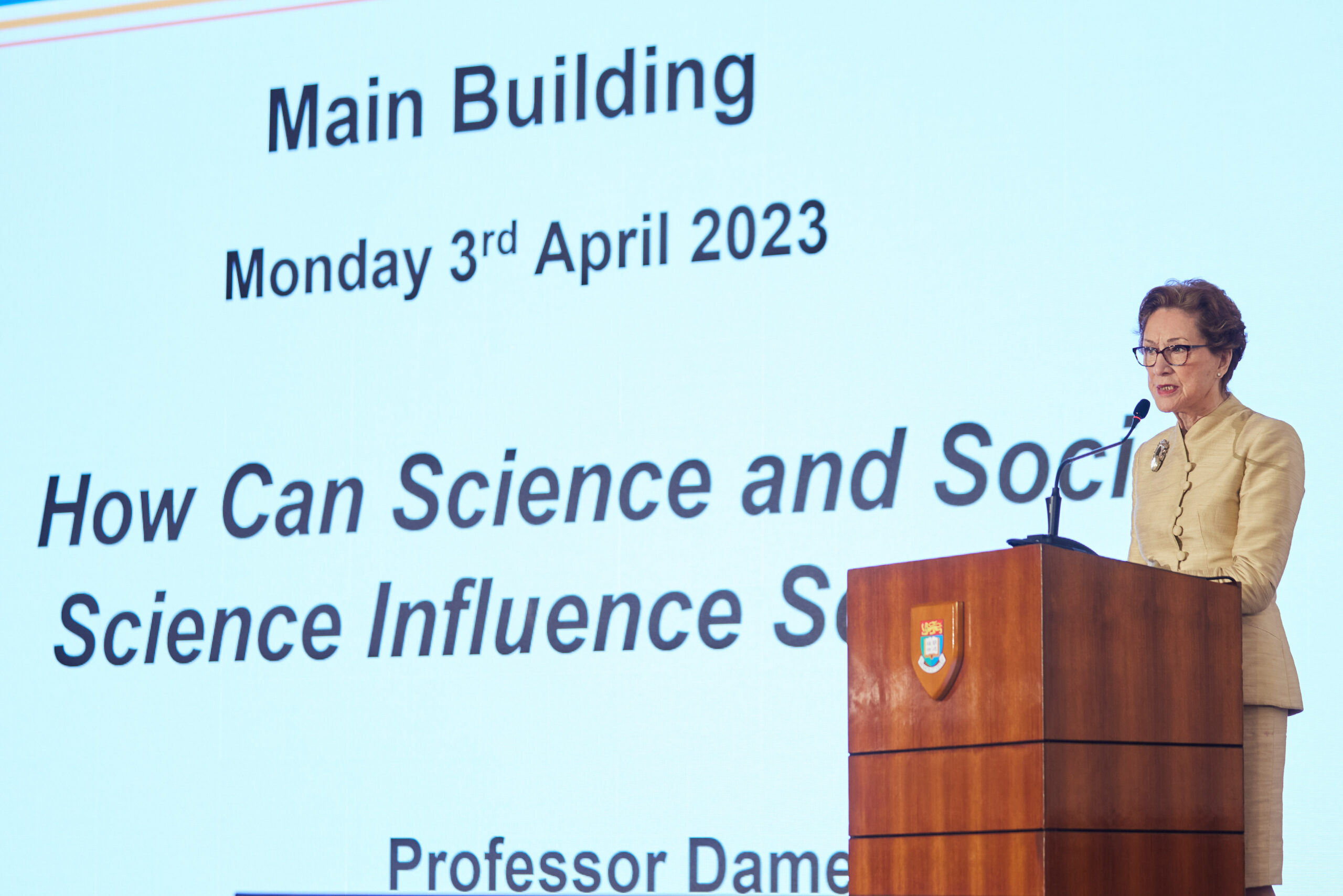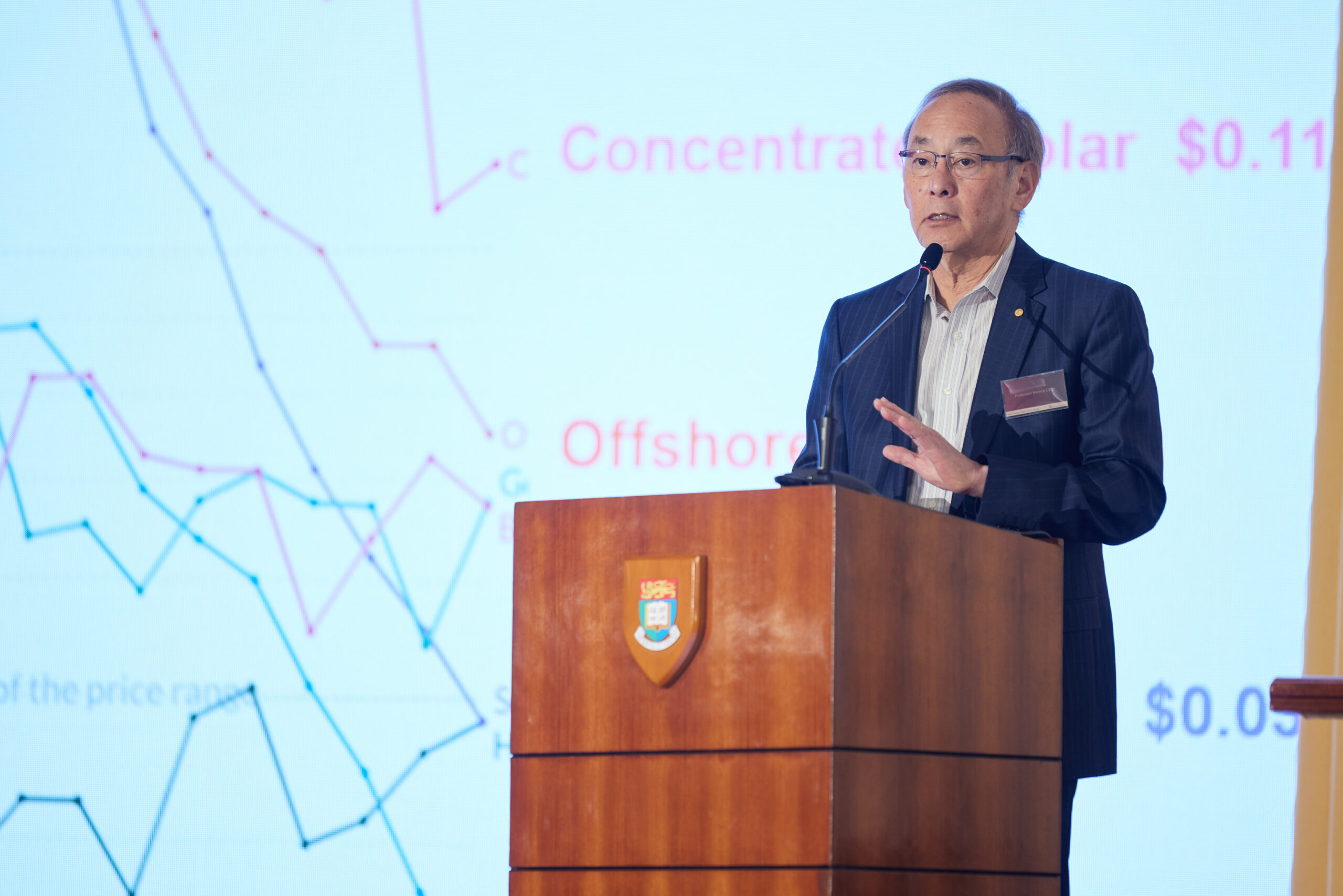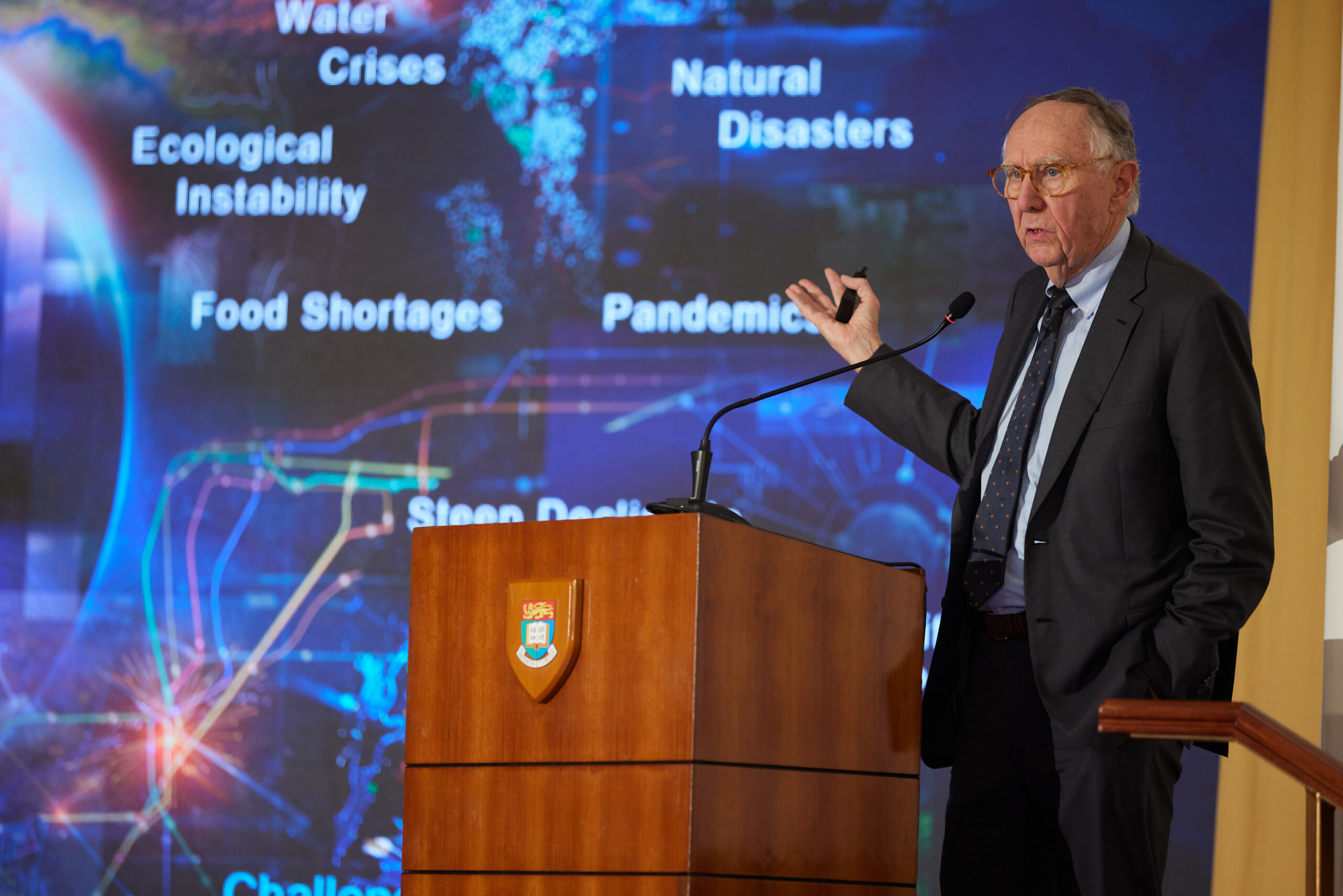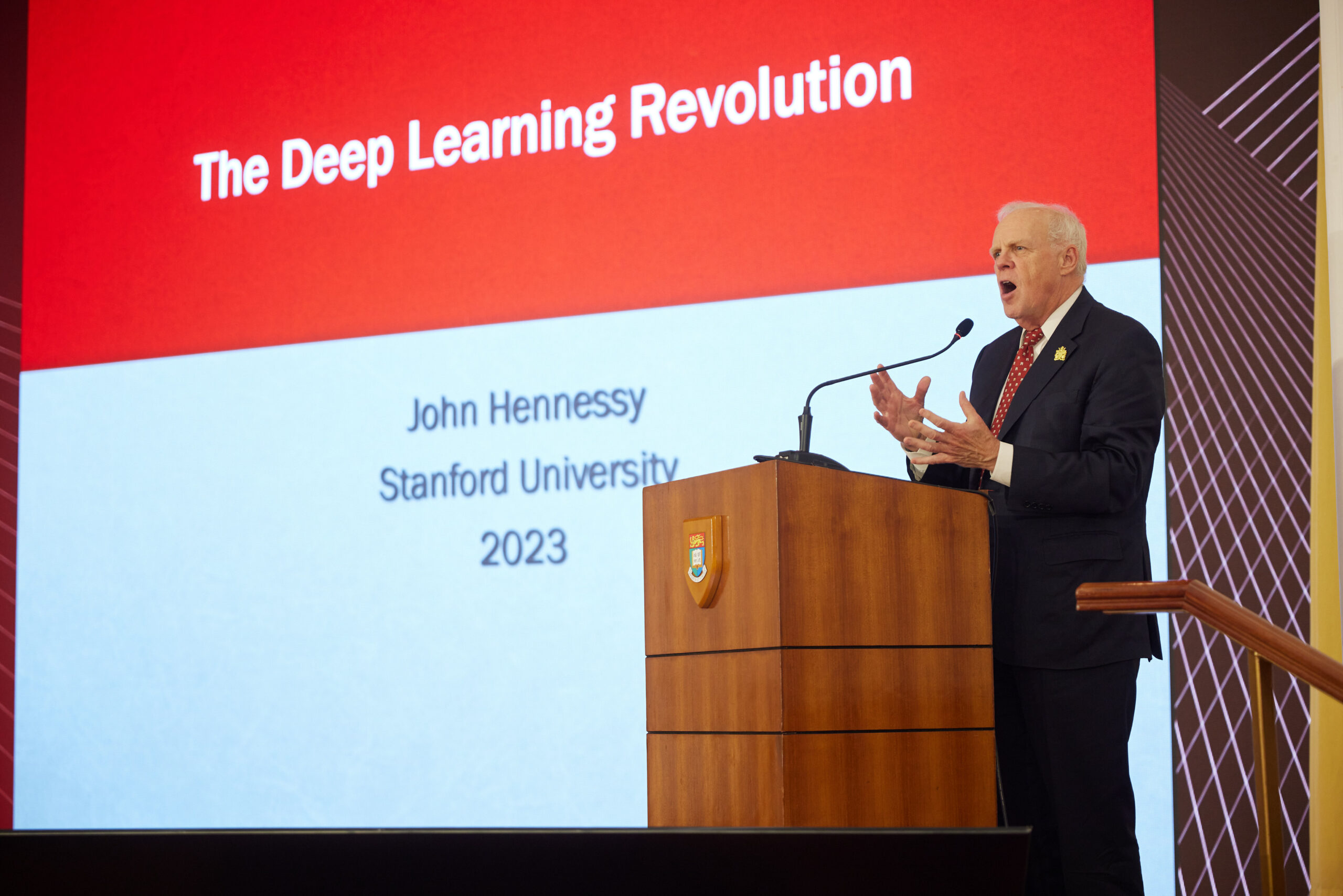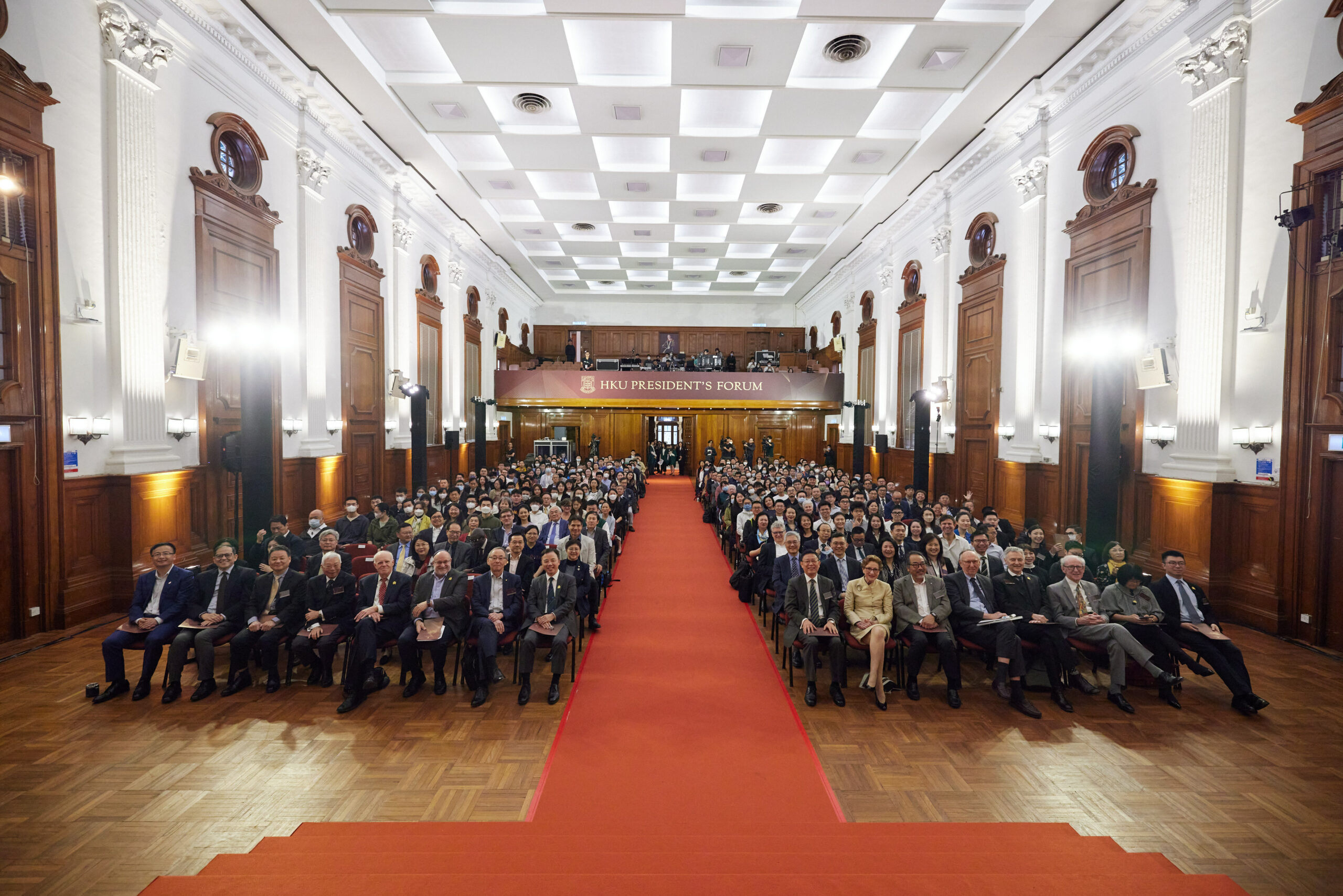PROLOGUE BY
PROFESSOR
XIANG ZHANG
Facing various challenges in today’s world, I believe that the future of the University of Hong Kong lies with positive changes that promote a real sense of ownership, openness, willingness to take risk and think globally.
Ranking 21st in the world and having been merited the most international university for three consecutive years, HKU has much more to offer to the world. The University is not an observer to global challenges, but an active participant in providing global solutions.
It is my hope that the HKU President’s Forum, with the presence of distinguished scholars from different fields, shall become a regular platform that offers diversified insight, ignites discussion and incubates new ideas in our society.
Programme
HKU President’s Forum – Science and Society
| Date | 3 April 2023 (Monday) |
| Time | 9am – 12noon (HKT) |
| Venue | Loke Yew Hall, Main Building, HKU |
Programme
(Please click to watch full recordings)
(Please click to watch full recordings)
Event Video
Convenor
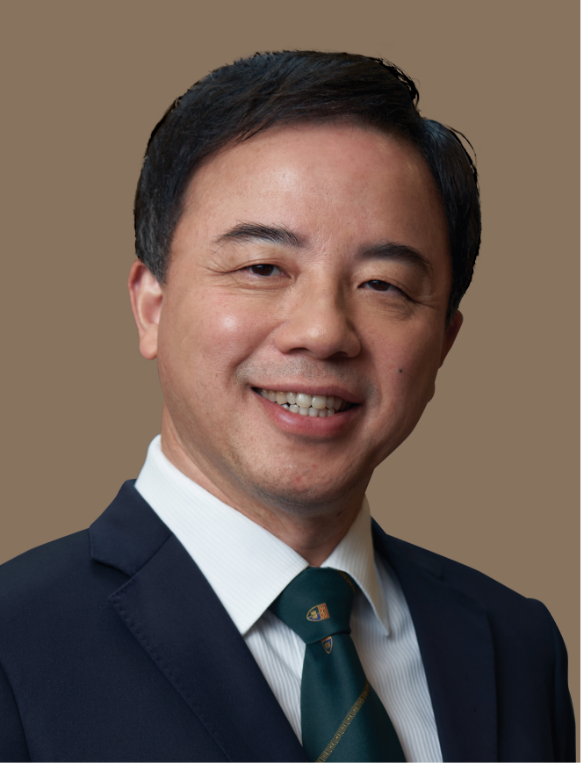
Professor Xiang Zhang
President and Vice-Chancellor, HKU
Professor Xiang Zhang is currently the President and Vice-Chancellor of the University of Hong Kong, member of Chinese Academy of Sciences (CAS) and also US National Academy of Engineering (NAE). Professor Zhang’s research focuses on materials physics, metamaterials and nano-photonics. He has published over 400 journal papers including over 90 publications in Science and Nature family series. In 2008, Professor Zhang’s research was selected by Time Magazine as one of the “Top Ten Scientific Discoveries of the Year” and “50 Best Inventions of the Year”, Discover Magazine’s “Top 100 Science Stories” in 2007, and R&D Magazine’s top 25 Most Innovative Products of 2006. In 2019, his research team’s work on “Casimir effect” was selected as one of the Top 10 Breakthroughs for 2019 by Physics World. Professor Zhang was the winner of the 2021 SPIE Mozi Award in recognition of his seminal, fundamental contributions in optical physics and experimental research in the optical perfect lens awarded by the International Society for Optics and Photonics (SPIE).
Speakers

Professor Dame Carol Black
Clinician and Scientist Specialising in Research and Treatment of Scleroderma
How Can Science and Social Science Influence Society?
Dame Carol will draw upon her long career to give examples of how evidence and science can influence government policy for societal good.
Systemic sclerosis is a complex chronic disease with the highest mortality of any rheumatic condition, with an enormous clinical burden. Based on scientific progress it is now envisioned as a disorder of dysregulated connective tissue and vascular repair in response to sustained injury – and mortality and morbidity have been much reduced in recent decades.
A different but equally challenging problem is the health of Britain’s population of working age. Three independent evidence-based reviews for the UK Government, on the inter-relationship of work, health and productivity, have had a major effect on government policy, creating a compelling case for decisive action to deliver improved prosperity to individuals, employers and the nation.
Finally, a fourth independent review for the Government, this one on illicit drugs (demand, supply, treatment and recovery) has gathered evidence that led the government to allocate almost £800 million over three years to implement a new 10- year strategy to bring about a whole-system cross-government change towards collaborative working, with clear potential for a safer society, fewer homicides, reduction in serious acquisitive crime, and fewer drug-dependent people in prison.
Biography
Distinguished
Lecture
Lecture
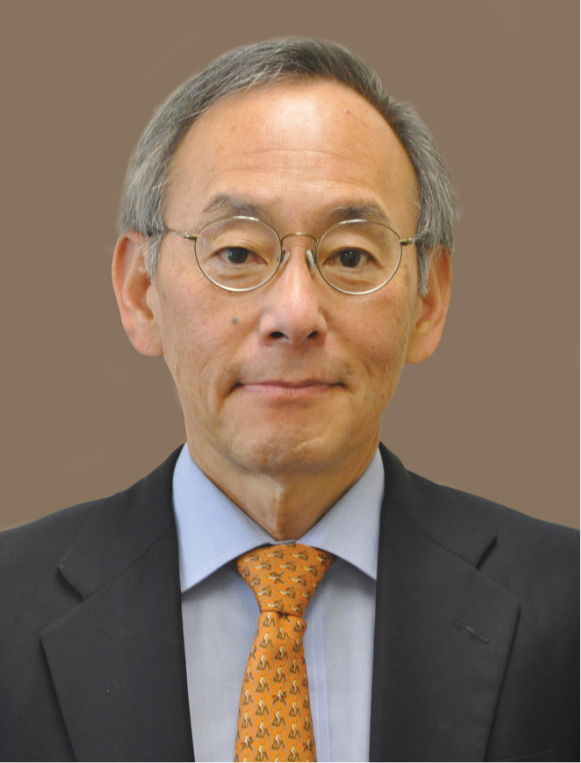
Professor Steven Chu
Nobel Laureate in Physics
Former US Secretary of Energy
Climate Change and Innovative Paths Towards a More Sustainable Future
The multiple industrial and agricultural revolutions have transformed the world. However, an unintended consequence of this progress is that we are changing the climate of our planet. In addition to the climate risks, we will need to provide enough clean energy, water and food of a more prosperous world that may grow to 11 billion by 2100. The talk will discuss the significant technical challenges and potential solutions that could provide better paths to a more sustainable future. How we transition to from where we are now to where we need to be within 50 years is arguably the most pressing set of issues that science, innovation and public policy have to address.
Biography
Distinguished
Lecture
Lecture

Dr Jack Dangermond
Leader in Development of Geographic Information Systems (GIS)
GIS is Imperative for Sustainability
Balancing human-made systems with the natural world is our life’s work. It’s the reason why Environmental Systems Research Institute (Esri) was founded over a half century ago.The vision was to develop GIS software that would be useful when applied to real life problems and to solve complex problems like sustainability and climate resilience. Creating positive change is essential for sustainable economies and businesses, particularly, for human life and society. And while it is challenging, people can do it at scale – if business, government, and science can come together and see our common ground.
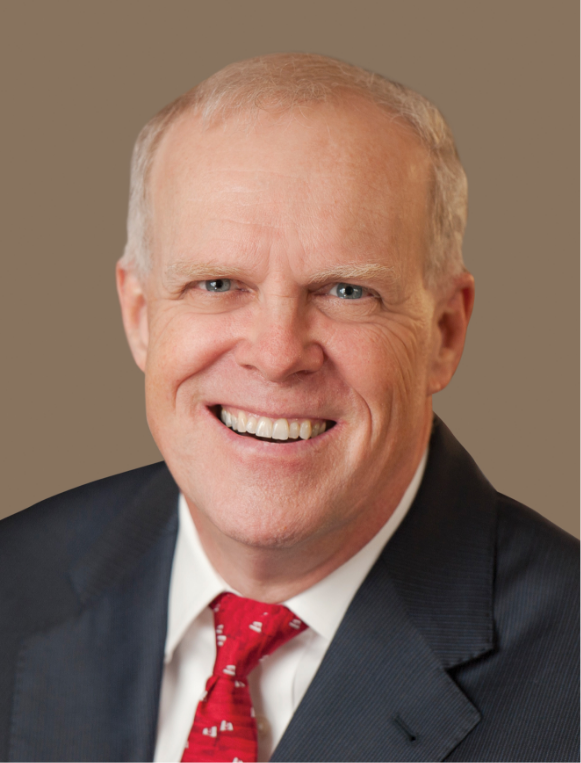
Professor John Hennessy
Pioneer in Computer Architecture
ACM Turing Award Winner
Former President of Stanford University
The Deep Learning Revolution
The invention of the microprocessor, the personal computer, the Internet, and the World Wide Web have changed our lives and society. Machine learning based on deep neural networks will be as important as any of these earlier innovations and may have deeper and more disruptive societal impacts than earlier innovations. What has enabled this revolution? How has the capability of systems using this technology changed? How will deep learning transform our society?
Biography
Distinguished
Lecture
Lecture
Distinguished Lecture by
Professor Dame Carol Black
Influencing Healthcare – and more
The lecture will describe a journey from hospital medicine and research to leadership roles in medicine and healthcare, and on to working with and advising government for some seventeen years. The journey was from concentration on a particular disease and individual patients, to grappling with the social determinants of health such as employment and addiction. The drive has been to identify a wicked problem, recover the evidence and research, and then develop policies and practical strategies that could be implemented for societal good.
| Date | 31 March 2023 (Friday) |
| Time | 6pm - 7pm (HKT) |
| Venue | Faculty Boardroom, 1/F Daniel & Mayce Yu Administration Wing, 21 Sassoon Road |
Distinguished Lecture by
Professor Steven Chu
Entropy, Molecular Motors, and Non-Thermal Equilibrium Statistical Physics
The transport of molecular cargos in neuronal cells is analysed in the context of new developments in statistical physics. Our development of very bright optical probes enabled the long-term single tracking of molecular cargos in live neurons for tens of minutes. The number of dynein motors transporting a cargo was found to switch stochastically from one to up to five motors during the long-range transport in neurons. We are able to resolve individual molecular steps, and formulated a new, quantitative chemo-mechanical model where two ATP molecules are hydrolysed sequentially. Our model is consistent with extensive structural, single-molecule and biochemical measurements.
The observed fluctuations in movement can be described by a steady-state non-thermal equilibrium effective temperature. The Fluctuation Theorem, first proved in 1993 and applicable in any non-thermal equilibrium processes, is shown to yield a minimum “uncertainty principle” limit, where the product of heat entropy and the statistical precision of any physical operation is greater than or equal to 2𝑘𝐵𝑇. In the context of intercellular molecular transport, we show that a smaller variance in the movement of the cargo vesicle demands a greater expenditure of energy.
| Date | 3 April 2023 (Monday) |
| Time | 2:30pm – 4pm (HKT) |
| Venue | Room G07, G/F Main Building, HKU |
Distinguished Lecture by
Professor John Hennessy
Energy and Silicon Efficient Computing: A 45 Year Journey
For nearly four decades, computers have dramatically and relentlessly improved cost-performance. In the past ten or more years, that improvement has begun to abate due both to technology limitations (the slowdown in Moore’s Law and the end of Dennard scaling) and the increasing reliance by computer architects on speculative techniques to achieve higher performance. This slowdown comes just as the breakthroughs in machine learning are demanding massive increases in computing performance. A new direction based on domain-specific architectures is the only clear way forward.
| Date | 3 April 2023 (Monday) |
| Time | 2:30pm – 4pm (HKT) |
| Venue | Room 218, 2/F Main Building, HKU |
